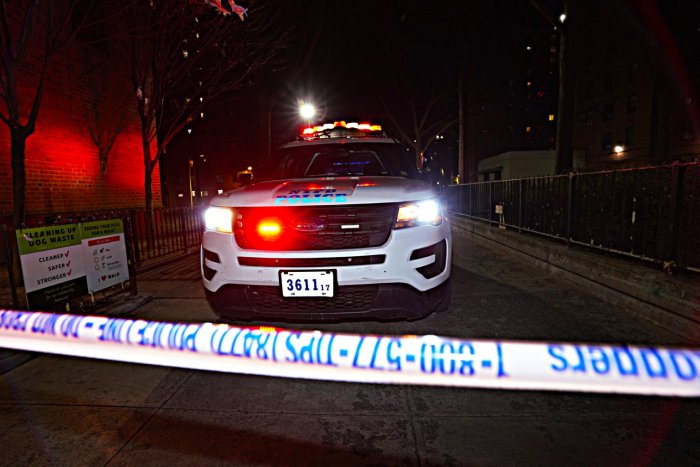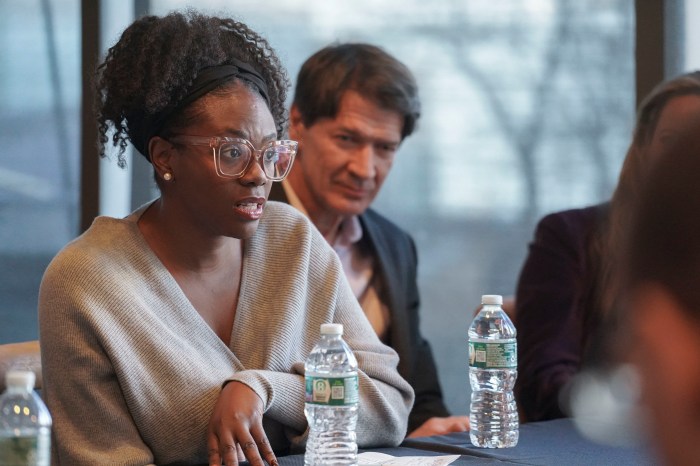After moving to the city from Germany, he started his family and business in Brooklyn, where he lived in Brooklyn Heights and ran a rubber factory on 1st Street in…
By Cynthia Koons
If there is a New York dream, German-born immigrant Conrad Poppenhusen may have lived it.
After moving to the city from Germany, he started his family and business in Brooklyn, where he lived in Brooklyn Heights and ran a rubber factory on 1st Street in Williamsburg in the mid-1800s.
Around the same time, a small coastal neighborhood in northeast Queens was flourishing, and when he learned of it, he decided to be a part of its growth.
So he picked up his family and business 150 years ago and relocated to what is now known as College Point — a neighborhood that hails him as its benefactor and plans to honor him with a parade on Saturday.
“He just was very generous,” said Susan Brustmann, director of the Poppenhusen Institute in College Point. “Even though he achieved a lot in his life through dedication, he just remained very humble. He never got full of himself so he would horde his money.”
The Poppenhusen Institute holds archives of College Point’s history and is one of five landmarks in the community that bears the Poppenhusen name.
The Poppenhusen Library, which recently reopened after renovations to the basement children’s collection, a park, a monument and an avenue also honor Conrad Poppenhusen, who funded the first schoolhouse in College Point, brought fresh water to the residents and financed the First Reformed Church.
When he came to College Point in the mid-1800s, it was divided into three neighborhoods: Strattontort, Flamersburg and College Point. He built a large mansion, which was in keeping with the area’s character at that time, on what is now 120th Street just north of 12th Avenue.
“Although the house is no longer standing, the entranceway and stone wall that was standing around it and the pillars are still standing on 9th Road,” Brustmann said. “The College Estates have replaced his home and stand on what was his property.”
Along with building a handsome estate for himself, Poppenhusen brought his industry to the neighborhood that is now home to the College Point Corporate Park, an area that is seeing a rare insurgence of manufacturing in New York City.
“He provided health and death benefits for his workers long before anyone did that,” Brustmann said. His managers went to the docks in Manhattan and invited new immigrants to work in College Point.
With the money his business brought in, $100,000 went to the creation of the Poppenhusen Institute and $100,000 was donated to pay teachers to maintain the facility.
“It was open to all persons of race, religion or creed, and this was just post-Civil War,” Brustmann said. “It was created to improve the lives of people both socially and academically.”
Brustmann said Poppenhusen also founded the Northside Railroad and routed it through Flushing and College Point, with the last stop being in Whitestone.
“A lot of our seniors remember traveling on the train,” she said.
Some of those elder College Point residents will be in the parade Saturday.
One of them, 92-year-old Betty Pegen, is the guardian angel of the Poppenhusen monument and has tended the property that surrounds the statue for the past 35 years.
Brustmann said Pegen plans to ride in the horse-drawn carriage that will follow the brass band down College Point Boulevard, along 119th Street, past the First Reformed Church and then toward the Poppenhusen Institute, where the parade will end.
The marchers were scheduled to meet at 10:30 a.m. at the monument in front of the institute and the parade was scheduled to begin at 11 a.m.
It will honor the 150th anniversary of Poppenhusen’s arrival in College Point.
“He just believed in working hard,” Brustmann said. “He made a good life for his families.”
Reach reporter Cynthia Koons by e-mail at news@timesledger.com or call 718-229-0300, Ext. 141.



































